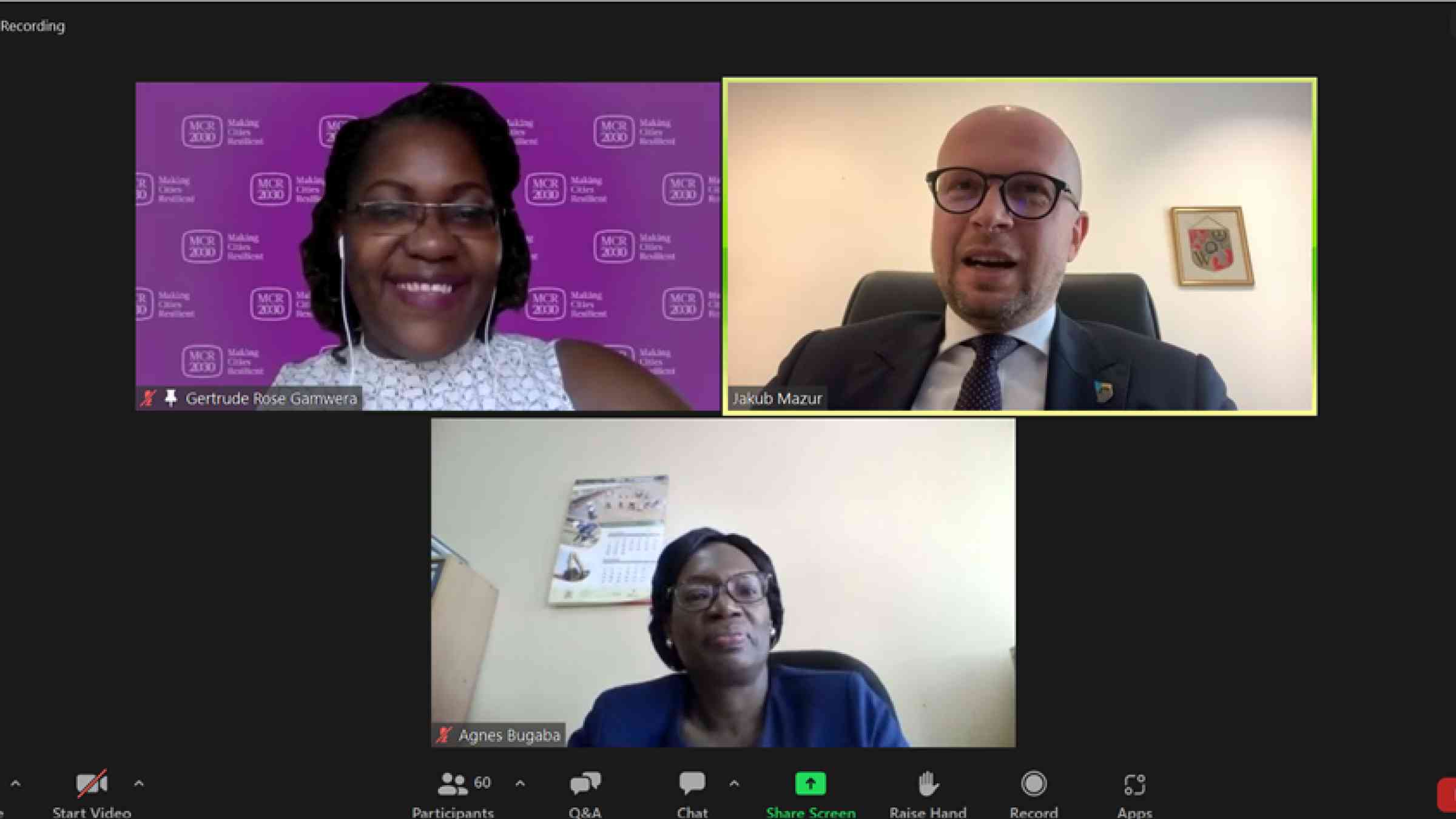Resilience ‘absolutely doable and achievable’

Two city leaders on the frontline of efforts to reduce climate and disaster risk firmly believe that building resilience is ‘absolutely doable and achievable’ even in such a period of unprecedented uncertainty. Their positive conclusion is even more uplifting considering the challenges Wroclaw, in Poland, and Kampala, in Uganda, currently face.
In the case of Wroclaw, Deputy Mayor Mr. Jakub Mazur, shared the huge challenges his city has had to deal with over the past few months: a five-fold increase in energy prices; a major pollution from an unknown source of the city’s main river; and, remarkably, the arrival of 250,000 refugees from neighbouring Ukraine, increasing the city population to over 1 million.
‘Even in this very demanding period, I have high hopes that we remain united in this vision of a green future – it’s not only a vision; we also require action especially at the ground level,’ said Mr Mazur, whose family along with tens of thousands of other Wroclaw residents have opened their doors to house refugees from Ukraine. ‘We have coped as a society, not just a government and that makes me very proud. It can only work if all sectors come together – health, education, and others – to take short-term action towards a longer-term strategy. And this includes remaining on our green track. We can only do this together within the city and beyond, including international collaboration.’
Wroclaw was recognized as a Making Cities Resilient 2030 (MCR2030) Resilience Hub two months ago for its leadership in disaster and climate risk reduction and its commitment to help other cities in their own ambitions.
In terms of Kampala, Ms Agnes Bugaba, the Risk Manager of the City Authority, detailed the pressure of rapid population growth on local infrastructure and services, housing, and the natural environment. Parts of the community, in particular families in slum areas, have been particularly affected. ‘A combination of policy formulation, project development, and capacity building of our technical capacity has seen our city take steps to move away from climate risk to a certain level of resilience. Partnership has been very important in all these developments,’ Ms Bugaba said.
Mr Mazur and Ms Bugaba were speaking at the first of a new MCR2030 webinar series entitled ‘Risk to Resilience: Building a Local Climate of Success’, moderated by Ms Gertrude Rose Gamwera Buyinga, Secretary-General of the East Africa Local Governments Association. The series, showcasing how local governments are scaling up their climate ambition and action, was launched to coincide with COP27, in Egypt. The Government of Egypt has highlighted ‘Sustainable Cities’ as one of the 15 priority areas for COP27 to scale up global initiatives. Tomorrow (Saturday 12 November), MCR2030 will officially recognize the COP27 host city of Sharm El-Sheikh as its newest Resilience Hub.
The city has a 27-step sustainable transformation programme that includes a scale up in solar power; development of green space in the inner city; protection of its cultural heritage from climate and disaster risk; and comprehensive plans to strengthen water and waste management.
MCR2030 is a United Nations-led global network that has mobilized 1,462 local governments, representing 454 million people, committed to strengthening their disaster and climate resilience. The partnership has also convened national governments, municipality associations, service providers, as well as 12 core partners that are a ‘who’s who’ of international organizations active on urban resilience.
To watch the recording of the session please click here

